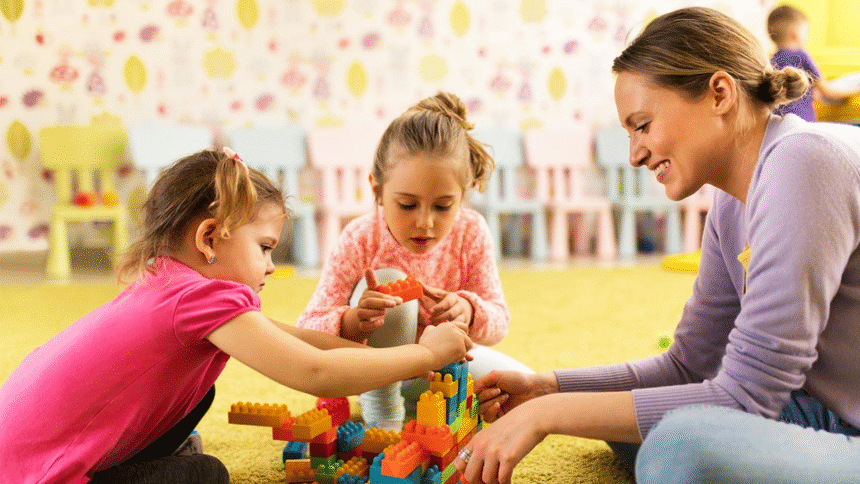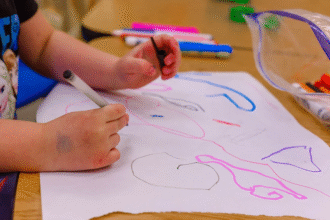Watching your toddler explore the world is one of the most heartwarming and fascinating experiences as a parent or caregiver. At this stage, children are like sponges—absorbing everything around them and constantly learning. This period is crucial for cognitive development, which refers to how toddlers think, learn, remember, and solve problems. The right activities can significantly boost this growth, setting a strong foundation for their future learning and development.
In this article, we’ll dive into the best activities that encourage cognitive growth in toddlers, how they work, and how you can easily incorporate them into daily routines—without needing fancy toys or expensive tools.
Why Cognitive Growth Matters in Toddlers
Before we explore activities, it’s essential to understand why cognitive development is so important. During the toddler years (1–3 years), children’s brains are developing at a rapid pace. This stage influences how they:
- Process information
- Learn language
- Solve problems
- Understand cause and effect
- Develop memory and attention
By providing stimulating and age-appropriate experiences, you’re not just entertaining your child—you’re helping build their brain architecture for life.
Top 10 Activities to Boost Cognitive Growth in Toddlers
Here are ten fun, simple, and effective activities that help your toddler grow mentally while having a great time.
1. Reading Books Together
Reading is one of the most powerful tools for brain development.
How it helps:
It introduces new vocabulary, improves attention span, and builds memory. It also encourages imagination and teaches toddlers how stories have a beginning, middle, and end.
Tips:
- Choose picture books with simple sentences.
- Use expressive voices and ask questions like, “What do you think will happen next?”
- Point to words and pictures as you read.
2. Puzzle Play
Simple puzzles (like shape sorters or wooden jigsaws) offer more than just fun.
How it helps:
Puzzles build problem-solving skills, improve hand-eye coordination, and promote logical thinking.
Tips:
- Start with puzzles that have large, chunky pieces.
- Help your child understand how to match shapes or colors.
- Celebrate small wins to build confidence.
3. Pretend Play
Playing pretend (like pretending to cook, feed a doll, or be a superhero) is essential for cognitive development.
How it helps:
It improves imagination, memory, sequencing, and even early math and social skills.
Tips:
- Provide safe props like toy food, hats, or boxes.
- Let your toddler take the lead in the play.
- Play along but don’t over-direct—this fosters independent thinking.
4. Building with Blocks
Blocks are open-ended toys that encourage thinking, planning, and creativity.
How it helps:
Teaches cause and effect, spatial awareness, balance, and even early math concepts like “bigger” and “taller.”
Tips:
- Use wooden or plastic blocks.
- Try building simple towers and knocking them down.
- Talk through the process: “Let’s put this big one on the bottom.”
5. Music and Singing
Toddlers love rhythm and repetition, and music is a fun way to stimulate the brain.
How it helps:
Boosts memory, listening skills, language patterns, and emotional expression.
Tips:
- Sing nursery rhymes and simple action songs.
- Use instruments like drums or shakers (you can make them at home!).
- Encourage clapping along or dancing.
6. Nature Walks and Outdoor Exploration
Exploring the outdoors is both refreshing and educational.
How it helps:
Supports observation skills, sensory development, and curiosity. It also builds vocabulary (tree, leaf, bird, etc.).
Tips:
- Let them collect rocks or leaves.
- Talk about what you see: “That’s a big tree,” or “The bird is flying.”
- Ask questions to encourage thinking.
7. Sorting Games
Sorting helps toddlers understand categories and organization.
How it helps:
Enhances memory, reasoning, and early math concepts.
Tips:
- Use colored blocks, buttons, or socks.
- Let them sort by color, shape, or size.
- Make it playful—“Can you find all the red ones?”
8. Water Play and Sensory Bins
These hands-on activities help develop brain connections through touch and movement.
How it helps:
Stimulates sensory processing, fine motor skills, and curiosity.
Tips:
- Use safe items like rice, sand, or water in a bin.
- Add cups, spoons, and toys.
- Let them explore freely—but supervise to keep it safe.
9. Simple Problem-Solving Tasks
Daily tasks can become mini brain-boosters.
How it helps:
Teaches cause-and-effect, memory, and sequencing.
Examples:
- Putting on socks or shoes
- Matching lids to containers
- Figuring out how to open a snack box
10. Talking and Asking Questions
Never underestimate the power of a good conversation.
How it helps:
Develops language, reasoning, listening, and turn-taking.
Tips:
- Ask open-ended questions like, “What did you see today?”
- Give time to respond, even if it’s babble.
- Repeat and expand on their words: “You said ‘dog’—yes, that’s a brown dog!”
Helpful Tips for Parents and Caregivers
- Be patient: Toddlers learn at their own pace.
- Keep it fun: If it feels like a chore, it won’t work.
- Limit screen time: Encourage real-world interaction.
- Follow their interests: If they love animals, use that theme in activities.
- Use daily routines as learning moments: Bath time, meal time, and bedtime all offer chances to talk, play, and grow
FAQs About Cognitive Development in Toddlers
1. At what age does cognitive development start in toddlers?
Cognitive development starts from birth but becomes more noticeable between 1 to 3 years, when toddlers begin recognizing people, solving simple problems, and showing memory and curiosity.
2. How can I tell if my toddler is developing normally?
Every child develops at their own pace, but general signs include curiosity, responding to their name, following simple instructions, recognizing familiar people, and trying to solve basic problems.
3. Can screen time affect my toddler’s cognitive growth?
Yes. Excessive screen time can limit opportunities for real-life interaction, which is essential for brain development. The American Academy of Pediatrics recommends limiting screen time to one hour a day for toddlers over 2 years old.
4. How often should I do cognitive activities with my toddler?
You don’t need a strict schedule—daily interaction through play, conversation, and exploration is enough. Even 10–15 minutes of focused activity can make a big difference over time.
5. Do I need expensive toys to help my toddler’s brain grow?
Not at all! Everyday objects, books, nature, and your time are far more effective than expensive gadgets. It’s the quality of the interaction that matters most.
Conclusion
Cognitive development in toddlers is not about flashcards or techy toys—it’s about real-world experiences, loving interaction, and engaging play. By doing simple activities like reading, playing pretend, and talking with your toddler, you’re giving them tools they’ll use for a lifetime.
So take a deep breath, follow their curiosity, and remember—you’re doing an amazing job helping your little one grow.







